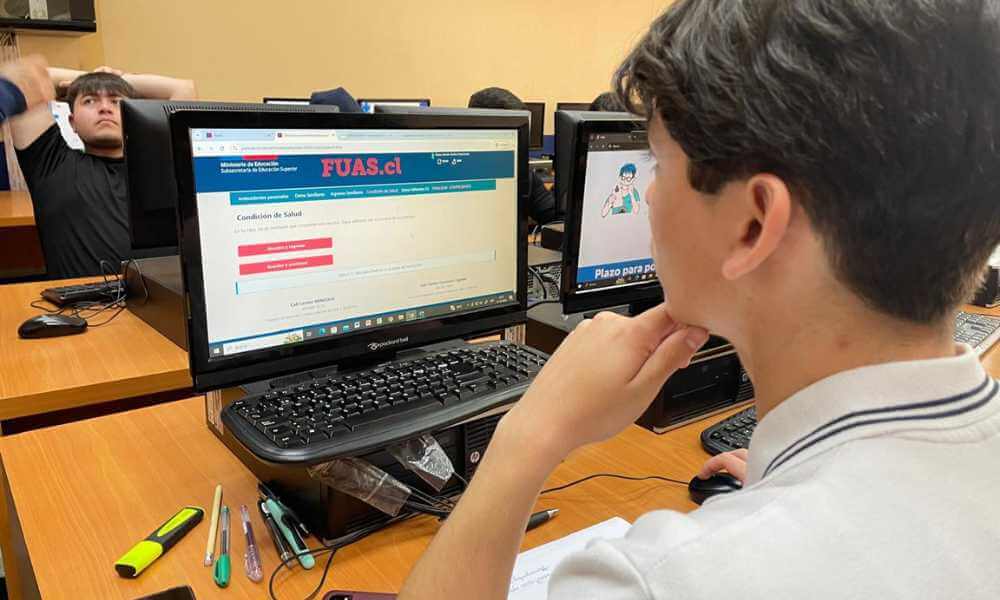Completing the Socioeconomic Accreditation Form (FUAS) is a key step for students across the country to access financial aid programs like Free Tuition, scholarships, or state loans for higher education. Through this form, applicants provide details about their socioeconomic, academic, and personal background to determine if they qualify for financial assistance.
The process must be completed online, and the form will remain available until Tuesday, October 22, at fuas.cl. As the deadline approaches, it’s common to have questions. Here are some key tips to make the process smoother and more efficient.
First and foremost, don’t wait until the last minute to fill out the form. While the FUAS is open until October 22, starting the process early will give you ample time to gather all the necessary personal and family information. You will need to provide details such as the national ID number (RUT), marital status, employment, and education level of each household member, as well as all household income sources, including wages, pensions, freelance income, contributions from relatives, child support, and dividends.
Secondly, it’s important to understand that a household includes all individuals living under the same roof who share living expenses and a common food budget, regardless of familial ties. This information will be verified with state agencies, so it’s crucial to avoid inconsistencies.
Finally, after submitting the form, you can edit and modify it as many times as necessary while the submission period is still open. The last submission will be the one considered. The FUAS gives access to over 10 types of benefits. Those not awarded aid initially will have the chance to appeal once results are released in March 2025, allowing them to provide additional information or correct errors.
Aspirations for the Future: Supporting the Admission Process
Across Chile, over 60,000 vocational high school seniors have received support for the 2025 higher education admission process through Fundación Luksic’s Aspirations for the Future program. This initiative aims to help students make informed decisions about their future and encourage them to pursue higher education, ultimately improving their life trajectories.
In its 2024 edition, the program provided personalized information kits to more than 60,000 students from all regions of the country. These kits contain employment and salary data for the students’ fields of interest, a step-by-step guide for applying for financial aid, and key dates in the admission process.
Uriel Tapia, a senior specializing in Business Administration, is one of the program participants. “The program helps us choose a career in an informed way, learn about job opportunities and salaries, and most importantly, it provides us with the key dates for applying for scholarships and loans,” he says.
Valentina González, another participant, plans to study Law. “It’s important to complete the FUAS because, even if a family is financially stable, university can still be very expensive. That’s why it’s always good to explore the possibility of getting financial aid. Aspirations for the Future has been a huge help in the process. Without this program, I wouldn’t have applied. I wouldn’t have known when or how to fill out the form.”
Finally, Álvaro Muñoz, a senior from the humanities and sciences track, is considering studying Business Administration, driven by his interest in commerce and his confidence in his abilities. For him, access to scholarships is crucial. “The program has provided us with information that’s been really helpful for completing the FUAS and the whole admission process. Sometimes the information is out there, but you don’t know how to access it,” he concludes.

